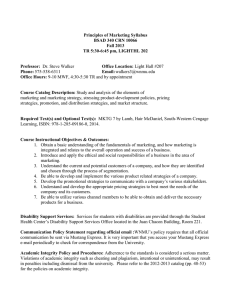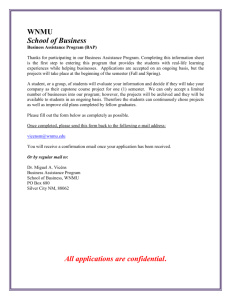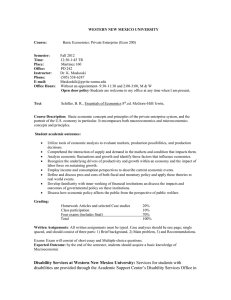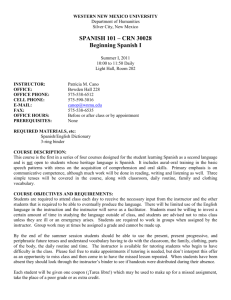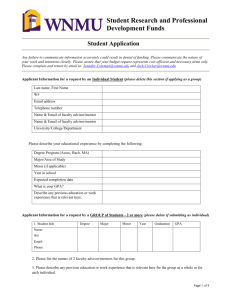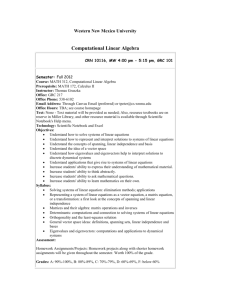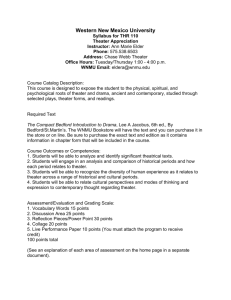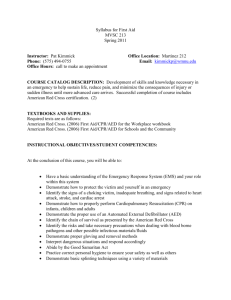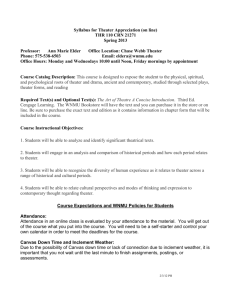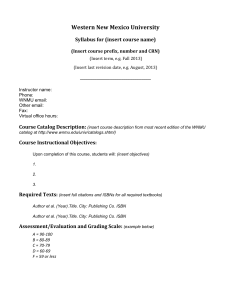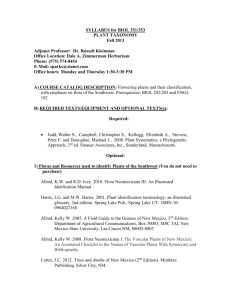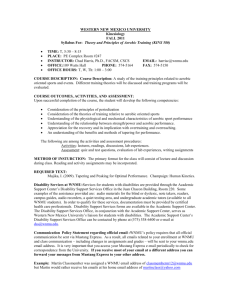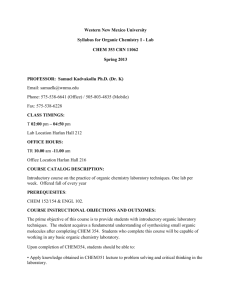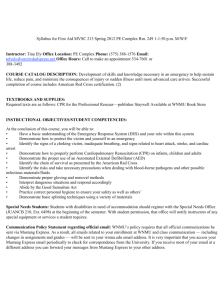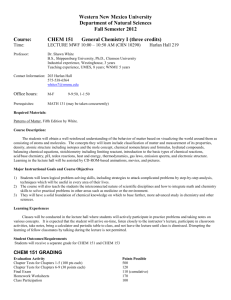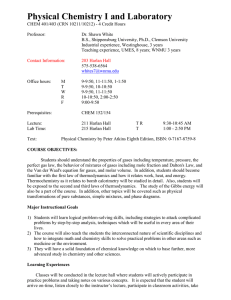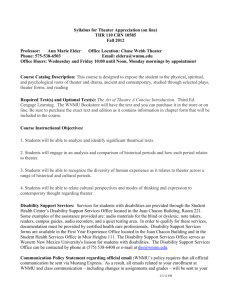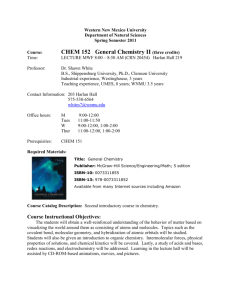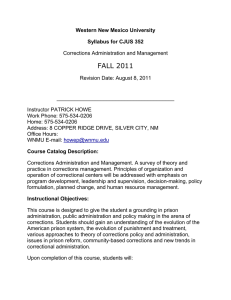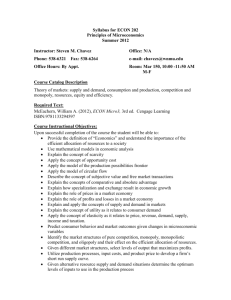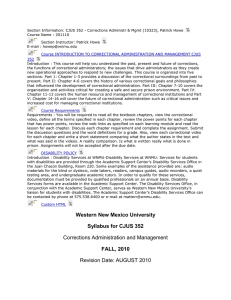Psychopathology
advertisement
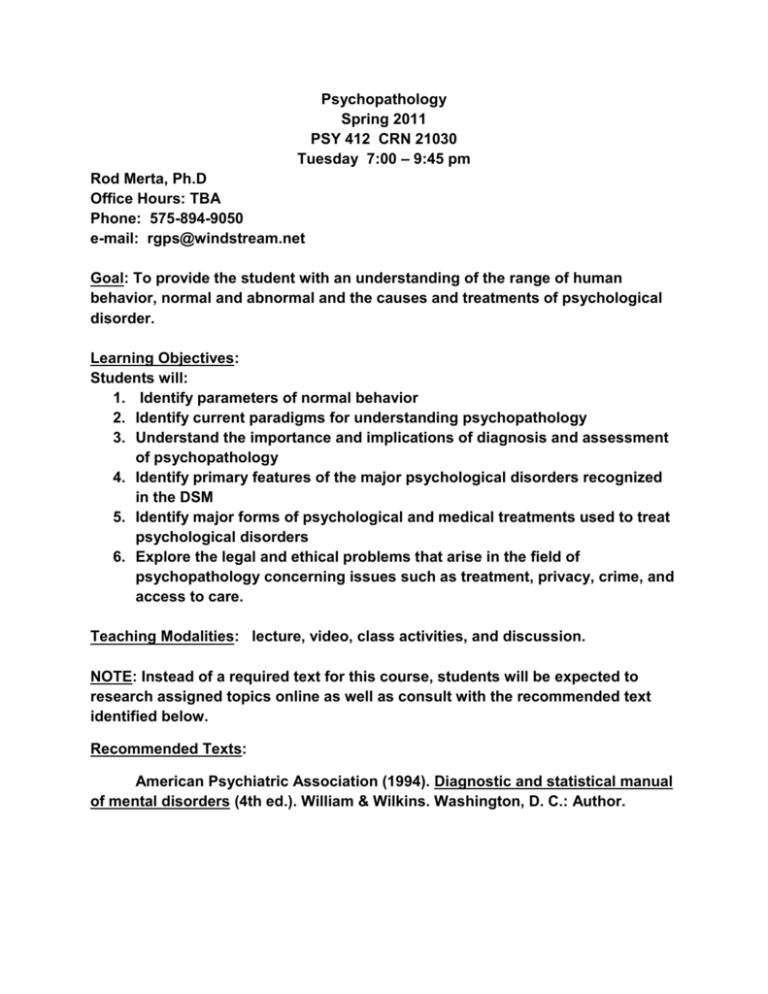
Psychopathology Spring 2011 PSY 412 CRN 21030 Tuesday 7:00 – 9:45 pm Rod Merta, Ph.D Office Hours: TBA Phone: 575-894-9050 e-mail: rgps@windstream.net Goal: To provide the student with an understanding of the range of human behavior, normal and abnormal and the causes and treatments of psychological disorder. Learning Objectives: Students will: 1. Identify parameters of normal behavior 2. Identify current paradigms for understanding psychopathology 3. Understand the importance and implications of diagnosis and assessment of psychopathology 4. Identify primary features of the major psychological disorders recognized in the DSM 5. Identify major forms of psychological and medical treatments used to treat psychological disorders 6. Explore the legal and ethical problems that arise in the field of psychopathology concerning issues such as treatment, privacy, crime, and access to care. Teaching Modalities: lecture, video, class activities, and discussion. NOTE: Instead of a required text for this course, students will be expected to research assigned topics online as well as consult with the recommended text identified below. Recommended Texts: American Psychiatric Association (1994). Diagnostic and statistical manual of mental disorders (4th ed.). William & Wilkins. Washington, D. C.: Author. Course Evaluation Class Participation/Weekly Exercises Term Paper Final Exam 30 40 30 points points points Class Participation: will consist of attending class regularly, participating in class discussions, and in completing weekly assigned online exercises. With the exception of the 1/14 Organizational Meeting and the 5/10 Final Exam, the remaining 15 class sessions will be worth a total of 30 points. The instructor, and not the student, will subjectively determine the quality of participation. Term Paper: will consist of a 10-page, APA-style paper, on a DSM IV Disorder. The student will identify a disorder of his or her choice. The instructor will provide a format for the Term Paper later in the semester. The Term Paper will be worth 40 points and will due in class on May 3, 2011. Students submitting Term Papers after this date will be penalized. Final Exam: will consist of completion of an in-class objective (multiple-choice) exam worth 30 points. The objective portion of the exam will be in class, will be based entirely on lectures, class discussions, and weekly online exercises. Students will allowed to utilize their class notes and weekly online exercises during the exam. You are encouraged to participate in a study group in preparation for this portion of the exam. Neither computer-scoring sheets nor blue books are needed for the in-class portion of the exam. Date for the Final Exam: May 10, 2011. Grading & Other Course-Related Issues & Concerns Grading Scale: The following grading scale will be used in this course: 98-100 = A+ 94-97 = A 91-93 = A- 88- 90 = B+ 84-87 = B 81-83 = B- 78- 80 = C+ 74-77 = C 71-73 = C- SCHOLARLY WRITING Use clear college level writing with correct spelling and grammar for all assignments. If you need help in writing, you may check with the WNMU Writing Center located in Miller Library or the Online Writing Center. ACADEMIC INTEGRITY POLICY AND PROCEDURES Each student shall observe standards of honesty and integrity in academic work as defined in the WNMU catalog. Violations of academic integrity include “any behavior that misrepresents or falsifies a student’s knowledge, skills or ability with the goal of unjustified or illegitimate evaluation or gain”. Generally violations of academic integrity include cheating and plagiarism. Refer to the catalog for definitions. Penalties for infractions are as follows: Plagiarism: 1st infraction: Grade of “0” for assignments; 2nd infraction: dismissal from the class with grade of “F”. Cheating: 1st infraction: dismissal from the class with grade of “F”. BLACKBOARD DOWN TIME/INCLEMENT WEATHER: Due to the possibility of Blackboard down time or lack of connection due to inclement weather, it is important that you not wait until the last minute to finish assignments, posting, or assessments. SPECIAL NEEDS: Students with disabilities in need of accommodations should register with the Special Needs Office at the beginning of the semester. With student permission, that office will notify instructors of any special equipment or services a student requires. Office: Juan Chacon Room 210 – phone number (575) 538-6498. COMMUNICATION POLICY STATEMENT REGARDING OFFICIAL EMAIL: WNMU’s policy requires that all official communication be sent via Mustang Express. As a result, all emails related to your enrollment at WNMU and class communication – including changes in assignments and grades – will be sent to your wnmu.edu email address. It is very important that you access your Mustang Express email regularly to check for correspondence from the University. If you receive most of your email at a different address you can forward your messages from Mustang Express to your other address. Example: Martin Class member was assigned a WNMU email address of classmemberm12@wnmu.edu but Martin would rather receive his emails at his home email address of martinclass@yahoo.com. Martin would follow the directions provided at http://www.wnmu.edu/campusdocs/direction%20for%20forwarding%20ema il.htm Passwords shall contain at least six (6) characters. Passwords shall contain at least one capital (upper case) letter, and at least one symbol (numbers and characters such as @ # $ % & *). Passwords shall be changed at least every 90 days. The instructor reserves the right to adjust the syllabus in the interest of academic integrity.
